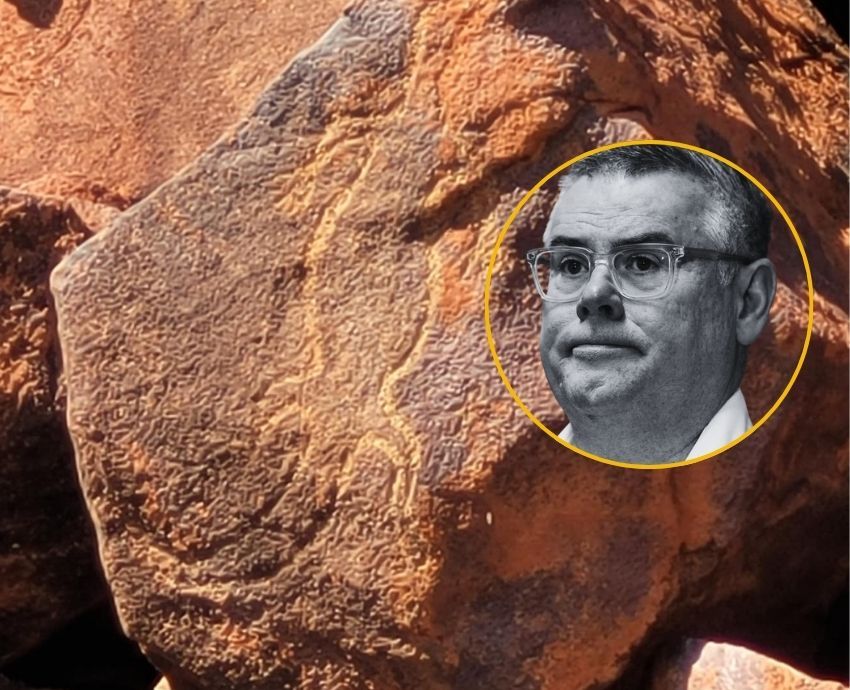
Despite evidence that we are living in an era of catastrophic climate change, Labor is trying to insert pro-business amendments to the main federal environment law, the Environment Protection and Biodiversity Conservation Act (EPBC Act).
The Bureau of Meteorology said that summer temperatures are expected to be “unusually high”, and a new report, Global Tipping Points, said that the world has passed a “catastrophic climate tipping point” of coral reef dieback.
The EPBC Act requires the federal government to assess “matters of national environmental significance” when deciding on project approvals. This applies to all major developments, including construction, mining and renewable projects.
Labor was set to amend the act in its previous term with environment minister Tanya Plibersek’s negotiated position with cross-benchers, but decided against under pressure from its Western Australia branch.
Current environment minister Murray Watt has been saying for months that his amendments will require environmental groups to “compromise”.
The amendments are set to be introduced to parliament on October 30. The ABC reported on October 29 that Labor is likely to refer the bill to a Senate inquiry, before putting it to the House of Representatives.
While Watt claims his amendments include wins for the environment, his big selling point is that they will be a “good deal for business” by “shaving months and years off” approval times.
The Business Council of Australia and other corporate lobbyists support the thrust of Watt’s amendments and are pressuring the Opposition to pass them.
Environment and community climate groups are opposed to the proposed changes. After Watt greenlit Woodside’s Burrup Hub gas expansion in Western Australia in May, they are right to be.
Carmel Flint, national co-coordinator of the Lock the Gate Alliance, said on October 28 the amendments are a “wholesale hand back of environmental decision-making to state governments”. She said they would allow “rural communities, farmers and Traditional Owners to be railroaded by corporate giants, whether it’s for coal, gas, renewables, or critical minerals”.
The Coalition government had attempted to shift approval power to the states, but was successfully resisted by the environment movement.
Lock the Gate said Labor’s current proposal goes “beyond failed attempts at state devolution”, which Labor once opposed, and that “state governments have shown they can’t be trusted to protect the environment or listen to communities”.
It also pointed out that in some states, such as New South Wales, there had been high-profile corruption findings and that jurisdictions, such as the Northern Territory, have “weak lobbying rules and little protection against undue influence on government decision makers”.
Flint said that the amendments have been sprung on everyone “without public consultation”, whereas “corporations have been in close discussions with the Federal Government for months”. She said it is a “betrayal” of all those who “depend on the government to protect our natural resources for the good of all”.
Wardaman woman Josie Douglas, executive director of policy at the Central Land Council, told Radio National on October 29 that “the voices of Aboriginal people have been ignored” by Labor in the debate about these environment laws.
She said that earlier optimism had been replaced by fears about Watt’s plans to exempt some projects of “national significance” from the amendments. “No project can be more significant than what we’re facing now in terms of the environmental crisis and the climate change future.”
She said she is deeply concerned that the pro-mining, anti-First Nations Northern Territory Country Liberal Party would be handed new approval powers.
Greens leader Larissa Waters described Watt’s amendments as “business facilitation laws” and said: “Environmental laws that don’t protect the environment are not environmental laws.”
Waters said Watt is protecting corporate interests. She said the Greens want “forests protected … we want to see laws that protect nature rather than just fast tracking more coal and gas”.
Watt’s proposed changes will, for the first time, compel corporations to disclose the expected greenhouse gas emissions from their proposed developments and outline their plans to reduce them.
However, it does not include a “climate trigger”, which is a mandate on the environment minister to “consider” the impact of carbon emissions, alongside other issues such as world heritage properties, threatened species and wetlands of international significance, when deciding whether to grant approval to new projects.
The laws, even with amendments, do include the option of the environment minister considering these broader climate impacts. However, as a mere option, they would also be able to ignore potential devastating climate impacts.
Watt said on October 29 that it would not be possible for him, personally, to sign off on every project as it would be “a guaranteed way to delay these decisions even more than what you have got at the moment”.
Watt’s amendments also reverse the “water trigger” brought in by former Labor PM Julia Gillard, under pressure from independent MP Tony Windsor. The “water trigger” gave the federal government explicit responsibility for decisions on fossil fuel developments (including fracking for gas) that affect water resources.
Douglas called on Watt to expand the water trigger, not remove it.
Even if the ECBP Act amendments were more directed towards protecting the environment, no single piece of law can be relied on to save the environment or prevent climate breakdown.